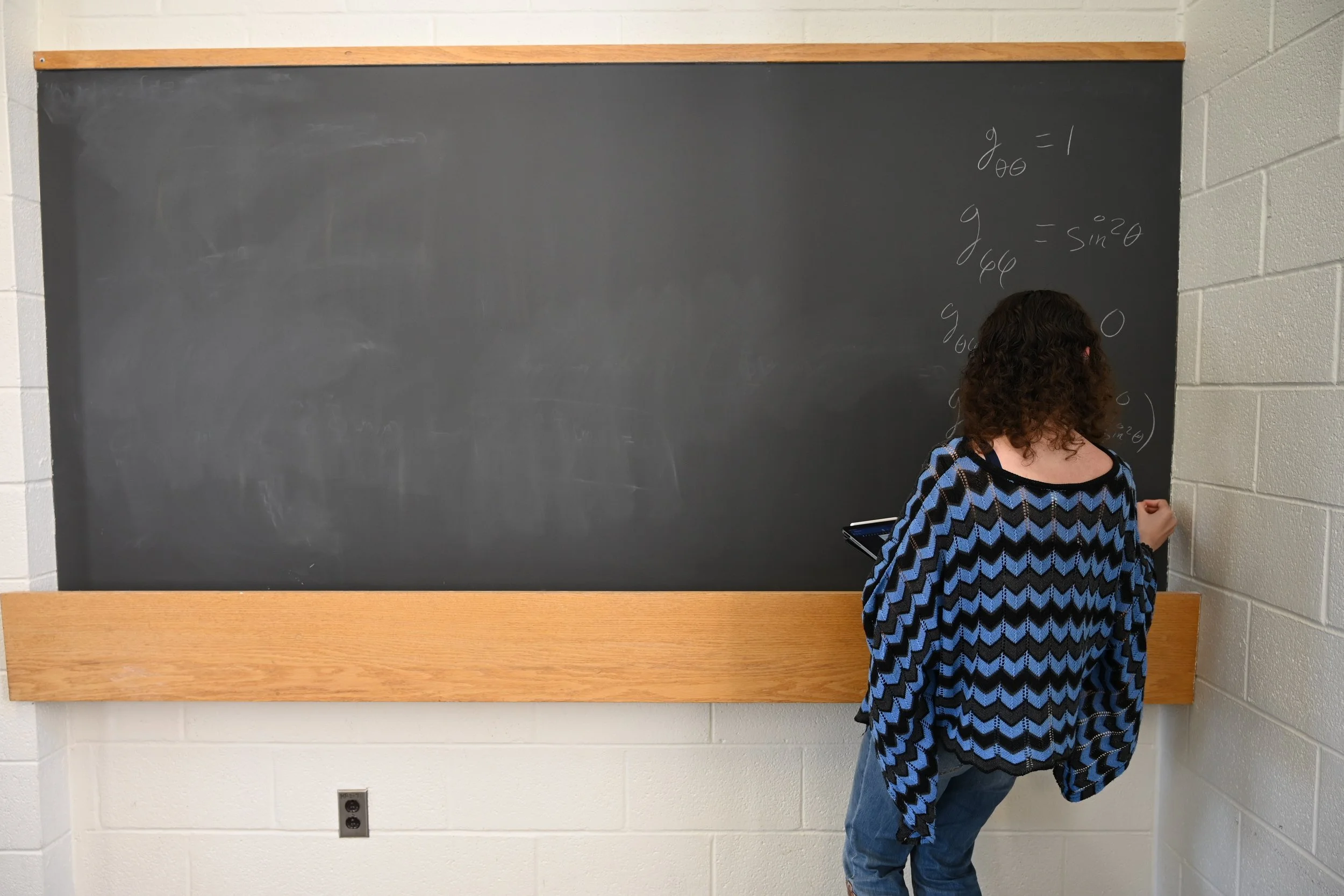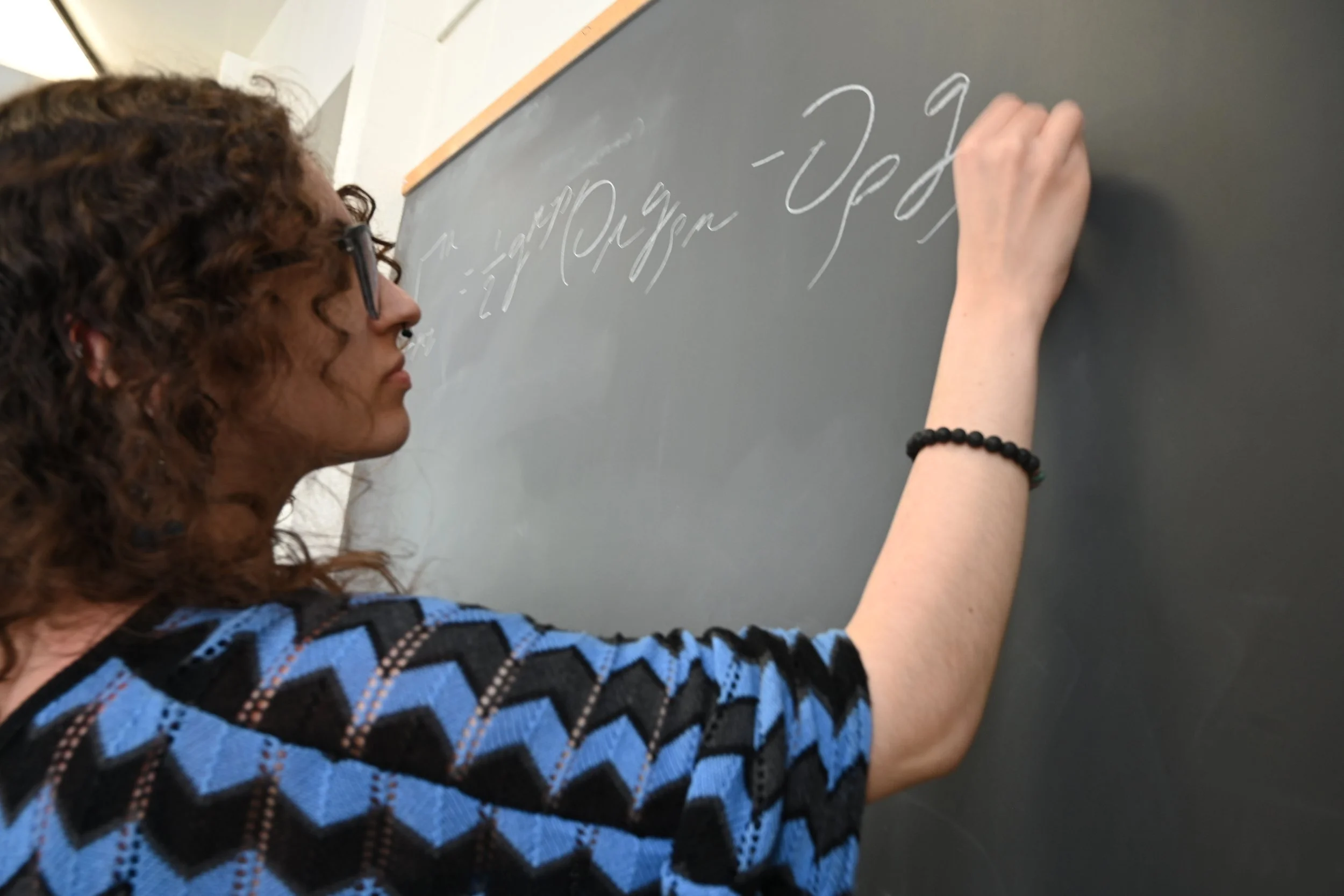Question 1:
What makes you stare off into space?
I'm a professional zoning outer, but specifically, music can really help me zone off in the space a lot. I don't know, it just tunes my brain into a specific mood, and it's just kind of like a movie film clip, it's in my mind.
Question 2:
Can beauty exist without suffering?
There is so much beauty in suffering. I don't think it's that easy to answer, like yes or no, but because the idea of a paradise is that there is no suffering and there is beauty in that, but how would you know that it's paradise unless you've suffered?
Question 3:
Describe the most beautiful thing you have ever destroyed.
Probably my childhood, because I've been just trying to rush to get through life so quickly, and my youth, I say, like I’m 90 years old. but I think I'm just I've crushed a lot of my individuality because I was bullied as a lot as a child and I think I killed all that a lot of that individuality that I had.
Question 4:
Has your work ever driven you mad? If it has, how did you come to clarity afterwards? If it hasn't, how do you prevent it from doing so?
Of course, it's driving me mad. I'm looking at math equations all day long. I would have gotten myself out of it just by taking a break and going on walks. Going on walks is a big thing for me. When I feel like I'm going crazy, I just go on a walk, especially on a sunny day.
Question 5:
What's a piece of advice you would give a five-year-old?
Enjoy being a child. I think when I was five years old, I just wanted to grow up. And it's like, just stay, a curious child, and don't let anybody tell you you're too young to do anything, because, um, I think I kind of had that limitation.
Question 6:
Is there any part of your work that is inspired by nature?
Probably not, per se, but people in physics are inspired by nature. I mean, we are again trying to understand the universe around us. So, it's anything from gravity to how the stars move - we're very interested in that. Yeah, we're it's we describe the nature around us.
Question 7:
What’s something physical and mental that you always carry?
I always carry support from my family. Because when things are tough, when I go through the ringer, like, I know I'll always have like my mom by my side, and I know that she'll always be my support system, and she's always there. And physically, I carry it around - my Muscle memory for my martial arts moves, which is pretty sick.
Question 8
When is something too much?
When is something too much for me? I can tell by the way my body starts reacting, like when I start shaking or feeling nauseous. Sometimes I get so anxious, I feel nauseous, and I hyper-focus on something for so long that my head hurts. And I'm like, okay, I need to take a break.
Question 9:
Have you ever seen something so strange it made you doubt your own eyes?
I did see my dog pull up the recliner and turn on the TV once. I mean, that was pretty crazy.
Question 10:
What inspired you to choose your major?
I took a high school physics class at an art school because I originally wanted to study film. And the professor - the way he taught it just clicked - and it was one of the few times when I felt like I intuitively understood the class.
Question 11:
Is there such a thing as an original idea?
Simultaneously, yes and no. It's so I'm trying to explain, but how ideas are just recycled with just different nuances. But I think subjectively, everybody has their own perspectives and they have their own take on things, so in that way, they can have their own ideas, even though it might seem recycled with different nuances.
Question 12:
How has studying your major changed the way you see the world?
The way physicists think, they are more problem solvers, they're not memorizers, so I have a lot of, like, friends in like, biology, for example, and they do a lot of memorizing concepts and stuff, which makes sense if you're practicing medicine and you need to know all these different things, but physics, um, because we're still things are constantly changing, what we know in the field is constantly changing.
Question 13:
Which course in your major has been the most rewarding so far?
Physics 465. It's a new physics and biology course. And in there, we study networks, and it was really rewarding to see how you can sketch a network based on the information you have, and use it to predict behaviors. So, like, I did my final project on the CATA bus system. So it was really cool to see, like, oh, this stop shut down. How would that affect everything else, just from me sketching.
Question 14:
What’s one thing everyone should understand about your field?
We're a lot more humble than the stereotype. A lot of people think that we're all like Sheldon Cooper. We're a lot more humble, and we're working on being very inclusive, so yeah, don't be afraid to approach us, physicists are not scary.
Question 15:
What advice would you give to someone considering majoring in your field?
Prioritze your sleep!
Question 16
What’s something you love learning about right now?
I love learning about networks and how they work, including how they're constructed. Small details that can change, like how we can predict behavior, and how it can work in biological systems, too. For example, you can predict how someone's body will react to something based on their biological network. It's really interesting.
Question 17:
If you had a time machine that could travel to one day in the past or future, where and when would you go?
I want to go back and see my grandma because she died when I was very young, and I want her to see just how I am now.
Question 18:
What motivates you to keep going when work gets hard?
Honest answer is my anxiety, because if I don't keep going, my anxiety is gonna be like, oh, you're gonna fail now. And so I refuse to let that happen.
Question 19:
If you had to teach a classroom of elementary school children how to do your dream job, how would you do it?
I wanna be a regulatory scientist for a medical device or pharmaceutical company, so how would I do that with elementary school students? Um, I'd probably have them write up standards for the class, and I would probably have them based on their agreed-upon standard, but they can each rotate and take turns and make sure, like all the rules are being followed, and then they could report back to the teacher.
Question 20:
Do you enjoy working with abstract ideas or concrete facts more?
It depends. I think you need a balance of both. I feel like the concrete facts kind of give a boundary, which is good because sometimes abstract ideas you don't really know how far you can go with them where, at least if you have some sort of boundary, you can kind of grasp those abstract ideas a little bit more and know what context to work them in and how to work them. But I think abstract ideas give the uniqueness and creativity, but the concrete ideas ground them and bring them down to earth, and make them easier to understand for other people.



